- Home
- Ian Fleming
Bond 03 - Moonraker Page 2
Bond 03 - Moonraker Read online
Page 2
Bond turned back to the N.A.T.O. paper.
‘The almost inevitable manner’, he read, ‘in which individuality is revealed by minute patterns of behaviour, is demonstrated by the indelible characteristics of the “fist” of each radio operator. This “fist”, or manner of tapping out messages, is distinctive and recognizable by those who are practised in receiving messages. It can also be measured by very sensitive mechanisms. To illustrate, in 1943 the United States Radio Intelligence Bureau made use of this fact in tracing an enemy station in Chile operated by “Pedro”, a young German. When the Chilean police closed in on the station, “Pedro” escaped. A year later, expert listeners spotted a new illegal transmitter and were able to recognize “Pedro” as the operator. In order to disguise his “fist” he was transmitting left-handed, but the disguise was not effective and he was captured.
‘N.A.T.O. Radio Research has recently been experimenting with a form of “scrambler” which can be attached to the wrist of operators with the object of interfering minutely with the nerve centres which control the muscles of the hand. However … ’
There were three telephones on Bond’s desk. A black one for outside calls, a green office telephone, and a red one which went only to M. and his Chief of Staff. It was the familiar burr of the red one that broke the silence of the room.
It was M.’s Chief of Staff.
‘Can you come up?’ asked the pleasant voice.
‘M.?’ asked Bond.
‘Yes.’
‘Any clue?’
‘Simply said if you were about he’d like to see you.’
‘Right,’ said Bond, and put down the receiver.
He collected his coat, told his secretary he would be with M. and not to wait for him, left his office and walked along the corridor to the lift.
While he waited for it, he thought of those other times, when, in the middle of an empty day, the red telephone had suddenly broken the silence and taken him out of one world and set him down in another. He shrugged his shoulders – Monday! He might have expected trouble.
The lift came. ‘Ninth,’ said Bond, and stepped in.
2 ....... THE COLUMBITE KING
THE NINTH was the top floor of the building. Most of it was occupied by Communications, the hand-picked inter-services team of operators whose only interest was the world of microwaves, sunspots, and the Heaviside Layer. Above them, on the flat roof, were the three squat masts of one of the most powerful transmitters in England, explained on the bold bronze list of occupants in the entrance hall of the building by the words ‘Radio Tests Ltd.’ The other tenants were declared to be ‘Universal Export Co.’, ‘Delaney Bros. (1940) Ltd.’, ‘The Omnium Corporation’, and ‘Enquiries (Miss E. Twining, O.B.E.)’.
Miss Twining was a real person. Forty years earlier she had been a Loelia Ponsonby. Now, in retirement, she sat in a small office on the ground floor and spent her days tearing up circulars, paying the rates and taxes of her ghostly tenants, and politely brushing off salesmen and people who wanted to export something or have their radios mended.
It was always very quiet on the ninth floor. As Bond turned to the left outside the lift and walked along the softly carpeted corridor to the green baize door that led to the offices of M. and his personal staff, the only sound he heard was a thin high-pitched whine that was so faint that you almost had to listen for it.
Without knocking he pushed through the green door and walked into the last room but one along the passage.
Miss Moneypenny, M.’s private secretary, looked up from her typewriter and smiled at him. They liked each other and she knew that Bond admired her looks. She was wearing the same model shirt as his own secretary, but with blue stripes.
‘New uniform, Penny?’ said Bond.
She laughed. ‘Loelia and I share the same little woman,’ she said. ‘We tossed and I got blue.’
A snort came through the open door of the adjoining room. The Chief of Staff, a man of about Bond’s age, came out, a sardonic grin on his pale, overworked face.
‘Break it up,’ he said. ‘M.’s waiting. Lunch afterwards?’
‘Fine,’ said Bond. He turned to the door beside Miss Moneypenny, walked through and shut it after him. Above it, a green light went on. Miss Moneypenny raised her eyebrows at the Chief of Staff. He shook his head.
‘I don’t think it’s business, Penny,’ he said. ‘Just sent for him out of the blue.’ He went back into his own room and got on with the day’s work.
When Bond came through the door, M. was sitting at his broad desk, lighting a pipe. He made a vague gesture with the lighted match towards the chair on the other side of the desk and Bond walked over and sat down. M. glanced at him sharply through the smoke and then threw the box of matches on to the empty expanse of red leather in front of him.
‘Have a good leave?’ he asked abruptly.
‘Yes, thank you, sir,’ said Bond.
‘Still sunburned, I see.’ M. looked his disapproval. He didn’t really begrudge Bond a holiday which had been partly convalescence. The hint of criticism came from the puritan and the jesuit who live in all leaders of men.
‘Yes, sir,’ said Bond non-committally. ‘It’s very hot near the equator.’
‘Quite,’ said M. ‘Well-deserved rest.’ He screwed up his eyes without humour. ‘Hope the colour won’t last too long. Always suspicious of sunburned men in England. Either they’ve not got a job of work to do or they put it on with a sun-lamp.’ He dismissed the subject with a short sideways jerk of his pipe.
He put the pipe back in his mouth and pulled at it absent-mindedly. It had gone out. He reached for the matches and wasted some time getting it going again.
‘Looks as if we’ll get that gold after all,’ he said finally. ‘There’s been some talk of the Hague Court, but Ashenheim’s a fine lawyer.’*
‘Good,’ said Bond.
There was silence for a moment. M. gazed into the bowl of his pipe. Through the open windows came the distant roar of London’s traffic. A pigeon landed on one of the window-sills with a clatter of wings and quickly took off again.
Bond tried to read something in the weatherbeaten face he knew so well and which held so much of his loyalty. But the grey eyes were quiet and the little pulse that always beat high up on the right temple when M. was tense showed no sign of life.
Suddenly Bond suspected that M. was embarrassed. He had the feeling that M. didn’t know where to begin. Bond wanted to help. He shifted in his chair and took his eyes off M. He looked down at his hands and idly picked at a rough nail.
M. lifted his eyes from his pipe and cleared his throat.
‘Got anything particular on at the moment, James?’ he asked in a neutral voice.
‘James.’ That was unusual. It was rare for M. to use a Christian name in this room.
‘Only paper-work and the usual courses,’ said Bond. ‘Anything you want me for, sir?’
‘As a matter of fact there is,’ said M. He frowned at Bond. ‘But it’s really got nothing to do with the Service. Almost a personal matter. Thought you might give me a hand.’
‘Of course, sir,’ said Bond. He was relieved for M.’s sake that the ice had been broken. Probably one of the old man’s relations had got into trouble and M. didn’t want to ask a favour of Scotland Yard. Blackmail, perhaps. Or drugs. He was pleased that M. should have chosen him. Of course he would take care of it. M. was such a desperate stickler about Government property and personnel. Using Bond on a personal matter must have seemed to him like stealing the Government’s money.
‘Thought you’d say so,’ said M. gruffly. ‘Won’t take up much of your time. An evening ought to be enough.’ He paused. ‘Well now, you’ve heard of this man Sir Hugo Drax?’
‘Of course, sir,’ said Bond, surprised at the name. ‘You can’t open a paper without reading something about him. Sunday Express is running his life. Extraordinary story.’
‘I know,’ said M. shortly. ‘Just give me the facts as you see the
m. I’d like to know if your version tallies with mine.’
Bond gazed out of the window for a moment to marshal his thoughts. M. didn’t like haphazard talk. He liked a fully detailed story with no um-ing and er-ing. No afterthoughts or hedging.
‘Well, sir,’ said Bond finally. ‘For one thing the man’s a national hero. The public have taken to him. I suppose he’s in much the same class as Jack Hobbs or Gordon Richards. They’ve got a real feeling for him. They consider he’s one of them, but a glorified version. A sort of superman. He’s not much to look at, with all those scars from his war injuries, and he’s a bit loud-mouthed and ostentatious. But they rather like that. Makes him a sort of Lonsdale figure, but more in their class. They like his friends calling him “Hugger” Drax. It makes him a bit of a card and I expect it gives the women a thrill. And then when you think what he’s doing for the country, out of his own pocket and far beyond what any government seems to be able to do, it’s really extraordinary that they don’t insist on making him Prime Minister.’
Bond saw the cold eyes getting chillier, but he was determined not to let his admiration for Drax’s achievements be dampened by the older man. ‘After all, sir,’ he continued reasonably, ‘it looks as if he’s made this country safe from war for years. And he can’t be much over forty. I feel the same as most people about him. And then there’s all this mystery about his real identity. I’m not surprised people feel rather sorry for him, although he is a multi-millionaire. He seems to be a lonely sort of man in spite of his gay life.’
M. smiled drily. ‘All that sounds rather like a trailer for the Express story. He’s certainly an extrordinary man. But what’s your version of the facts? I don’t expect I know much more than you do. Probably less. Don’t read the papers very carefully, and there are no files on him except at the War Office and they’re not very illuminating. Now then. What’s the gist of the Express story?’
‘Sorry, sir,’ said Bond. ‘But the facts are pretty slim. Well,’ he looked out of the window again and concentrated, ‘in the German break-through in the Ardennes in the winter of ’44, the Germans made a lot of use of guerrillas and saboteurs. Gave them the rather spooky name of Werewolves. They did quite a lot of damage of one sort or another. Very good at camouflage and stay-behind tricks of all sorts and some of them went on operating long after Ardennes had failed and we had crossed the Rhine. They were supposed to carry on even when we had overrun the country. But they packed up pretty quickly when things got really bad.
‘One of their best coups was to blow up one of the rear liaison H.Q.s between the American and British armies. Reinforcement Holding Units I think they’re called. It was a mixed affair, all kinds of Allied personnel – American signals, British ambulance drivers – a rather shifting group from every sort of unit. The Werewolves somehow managed to mine the mess-hall and, when it blew, it took with it quite a lot of the field hospital as well. Killed or wounded over a hundred. Sorting out all the bodies was the hell of a business. One of the English bodies was Drax. Half his face was blown away. Total amnesia that lasted a year and at the end of that time they didn’t know who he was and nor did he. There were about twenty-five other unidentified bodies that neither we nor the Americans could sort out. Either not enough bits, or perhaps people in transit, or there without authorization. It was that sort of a unit. Two commanding officers, of course. Sloppy staff work. Lousy records. So after a year in various hospitals they took Drax through the War Office file of Missing Men. When they came to the papers of a no-next-of-kin called Hugo Drax, an orphan who had been working in the Liverpool docks before the war, he showed signs of interest, and the photograph and physical description seemed to tally more or less with what our man must have looked like before he was blown up. From that time he began to mend. He started to talk a bit about simple things he remembered, and the doctors got very proud of him. The War Office found a man who had served in the same Pioneer unit as this “Hugo Drax” and he came along to the hospital and said he was sure the man was Drax. That settled it. Advertising didn’t produce another Hugo Drax and he was finally discharged late in 1945 in that name with back pay and a full disability pension.’
‘But he still says he doesn’t really know who he is,’ interrupted M. ‘He’s a member of Blades. I’ve often played cards with him and talked to him afterwards at dinner. He says he sometimes gets a strong feeling of “having been there before”. Often goes to Liverpool to try and hunt up his past. Anyway, what else?’
Bond’s eyes were turned inwards, remembering. ‘He seems to have disappeared for about three years after the war,’ he said. ‘Then the City started to hear about him from all over the world. The Metal Market heard about him first. Seems he’d cornered a very valuable ore called Columbite. Everybody was wanting the stuff. It’s got an extraordinarily high melting point. Jet engines can’t be made without it. There’s very little of it in the world, only a few thousand tons are produced every year, mostly as a by-product of the Nigerian tin mines. Drax must have looked at the Jet Age and somehow put his finger on its main scarcity. He must have got hold of about £10,000 from somewhere because the Express says that in 1946 he’d bought three tons of Columbite, which cost him around £3,000 a ton. He got a £5,000 premium on this lot from an American aircraft firm who wanted it in a hurry. Then he started buying futures in the stuff, six months, nine months, a year forward. In three years he’d made a corner. Anyone who wanted Columbite went to Drax Metals for it. All this time he’d been playing about with futures in other small commodities – Shellac, Sisal, Black Pepper – anything where you could build up a big position on margin. Of course he gambled on a rising commodity market but he had the guts to keep his foot right down on the pedal even when the pace got hot as hell. And whenever he took a profit he ploughed the money back again. For instance, he was one of the first men to buy up used ore-dumps in South Africa. Now they’re being re-mined for their uranium content. Another fortune there.’
M.’s quiet eyes were fixed on Bond. He puffed at his pipe, listening.
‘Of course,’ continued Bond, lost in his story, ‘all this made the City wonder what the hell was going on. The commodity brokers kept on coming across the name of Drax. Whatever they wanted Drax had got it and was holding out for a much higher price than they were prepared to pay. He operated from Tangier – free port, no taxes, no currency restrictions. By 1950 he was a multi-millionaire. Then he came back to England and started spending it. He simply threw it about. Best houses, best cars, best women. Boxes at the Opera, at Goodwood. Prize-winning Jersey herds. Prize-winning carnations. Prize-winning two-year-olds. Two yachts; money for the Walker Cup team; £100,000 for the Flood Disaster Fund; Coronation Ball for Nurses at the Albert Hall – there wasn’t a week when he wasn’t hitting the headlines with some splash or other. And all the time he went on getting richer and the people simply loved it. It was the Arabian Nights. It lit up their lives. If a wounded soldier from Liverpool could get there in five years, why shouldn’t they or their sons? It sounded almost as easy as winning a gigantic football pool.
‘And then came his astonishing letter to the Queen: “Your Majesty, may I have the temerity … ” and the typical genius of the single banner-line across the Express next day: “TEMERITY DRAX”, and the story of how he had given to Britain his entire holding in Columbite to build a super atomic rocket with a range that would cover nearly every capital in Europe – the immediate answer to anyone who tried to atom-bomb London. £10,000,000 he was going to put up out of his own pocket, and he had the design of the thing and was prepared to find the staff to build it.
‘And then there were months of delay and everyone got impatient. Questions in the House. The Opposition nearly forced a vote of Confidence. And then the announcement by the Prime Minister that the design had been approved by the Woomera Range experts of the Ministry of Supply, and that the Queen had been graciously pleased to accept the gift on behalf of the people of Britain and had conferred a knighthood on the don
or.’
Bond paused, almost carried away by the story of this extraordinary man.
‘Yes,’ said M. ‘“Peace in Our Time – This Time”. I remember the headline. A year ago. And now the rocket’s nearly ready. “The Moonraker”. And from all I hear it really should do what he says. It’s very odd.’ He relapsed into silence, gazing out of the window.
He turned back and faced Bond across the desk.
‘That’s about it,’ he said slowly. ‘I don’t know much more than you do. A wonderful story. Extraordinary man.’ He paused, reflecting. ‘There’s only one thing … ’ M. tapped the stem of his pipe against his teeth.
‘What’s that, sir?’ asked Bond.
M. seemed to make up his mind. He looked mildly across at Bond.
‘Sir Hugo Drax cheats at cards.’
_______________
* This refers to Bond’s previous assignments; described in Live and Let Die by the same author.
3 ....... ‘BELLY STRIPPERS’, ETC.
‘CHEATS AT cards?’
M. frowned. ‘That’s what I said,’ he commented drily. ‘It doesn’t seem to you odd that a multi-millionaire should cheat at cards?’
Bond grinned apologetically. ‘Not as odd as all that, sir,’ he said. ‘I’ve known very rich people cheat themselves at Patience. But it just didn’t fit in with my picture of Drax. Bit of an anti-climax.’

 Doctor No
Doctor No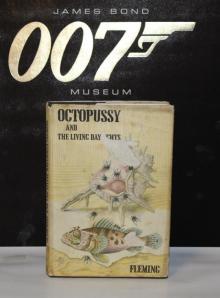 Octopussy & the Living Daylights
Octopussy & the Living Daylights On Her Majestys Secret Service
On Her Majestys Secret Service You Only Live Twice
You Only Live Twice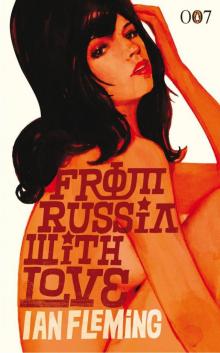 From Russia With Love
From Russia With Love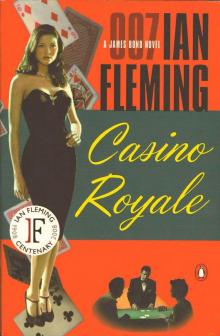 Casino Royale
Casino Royale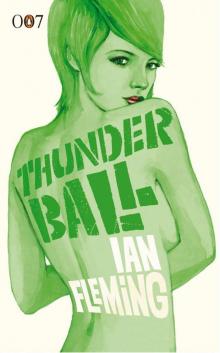 Thunderball
Thunderball For Your Eyes Only
For Your Eyes Only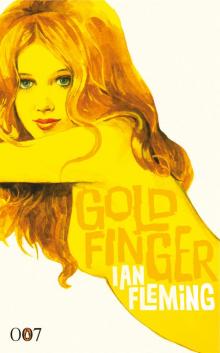 Goldfinger
Goldfinger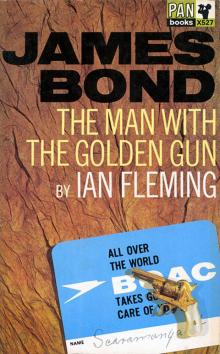 The Man With the Golden Gun
The Man With the Golden Gun The Spy Who Loved Me
The Spy Who Loved Me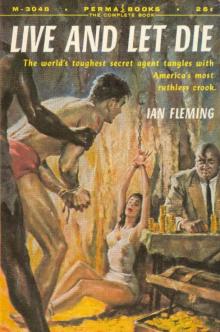 Live and Let Die
Live and Let Die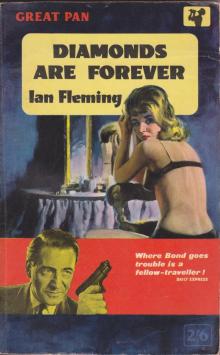 Diamonds Are Forever
Diamonds Are Forever Moonraker
Moonraker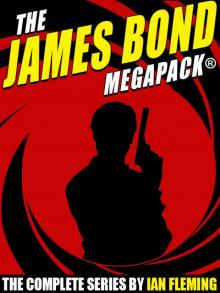 The James Bond MEGAPACK®
The James Bond MEGAPACK®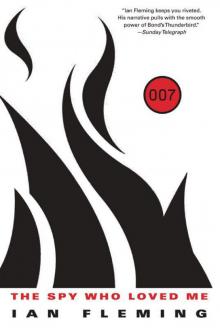 Bond 10 - The Spy Who Loved Me
Bond 10 - The Spy Who Loved Me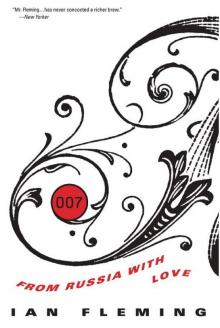 From Russia with Love (James Bond - Extended Series Book 5)
From Russia with Love (James Bond - Extended Series Book 5)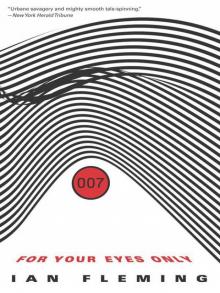 Bond 08 - For Your Eyes Only
Bond 08 - For Your Eyes Only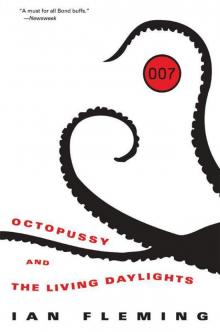 Bond 14 - Octopussy and the Living Daylights
Bond 14 - Octopussy and the Living Daylights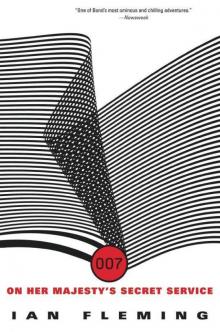 Bond 11 - On Her Majesty's Secret Service
Bond 11 - On Her Majesty's Secret Service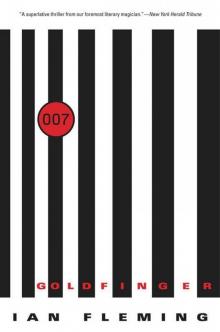 Bond 07 - Goldfinger
Bond 07 - Goldfinger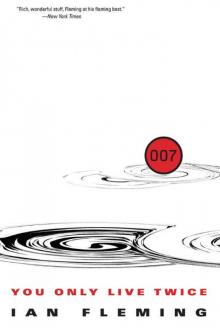 Bond 12 - You Only Live Twice
Bond 12 - You Only Live Twice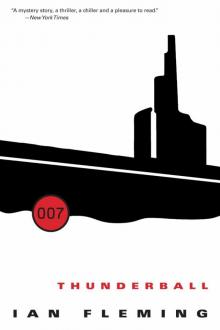 Bond 09 - Thunderball
Bond 09 - Thunderball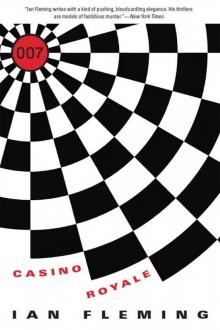 Bond 01 - Casino Royale
Bond 01 - Casino Royale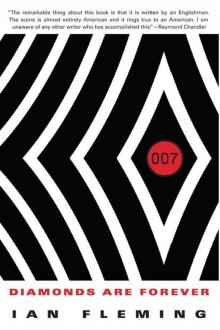 Diamonds are Forever (James Bond - Extended Series Book 4)
Diamonds are Forever (James Bond - Extended Series Book 4)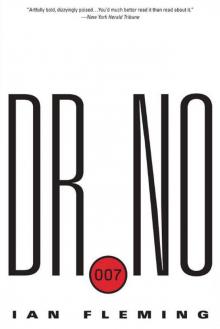 Bond 06 - Dr. No
Bond 06 - Dr. No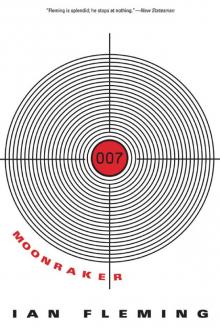 Moonraker (James Bond - Extended Series Book 3)
Moonraker (James Bond - Extended Series Book 3)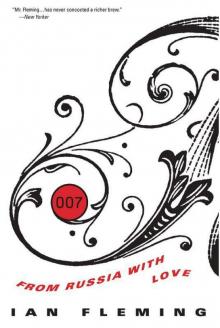 Bond 05 - From Russia With Love
Bond 05 - From Russia With Love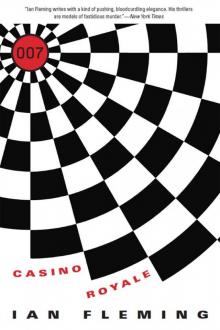 Casino Royale (James Bond - Extended Series Book 1)
Casino Royale (James Bond - Extended Series Book 1)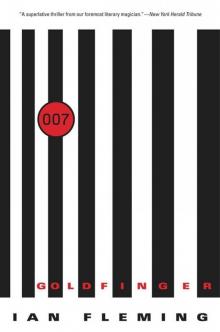 Goldfinger (James Bond - Extended Series Book 7)
Goldfinger (James Bond - Extended Series Book 7)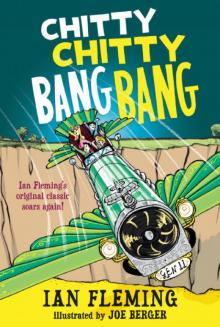 Chitty Chitty Bang Bang: The Magical Car
Chitty Chitty Bang Bang: The Magical Car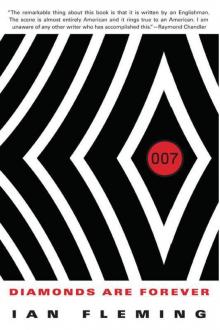 Bond 04 - Diamonds Are Forever
Bond 04 - Diamonds Are Forever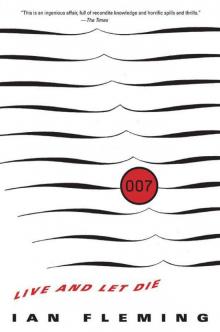 Bond 02 - Live and Let Die
Bond 02 - Live and Let Die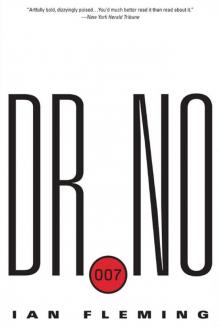 Dr. No (James Bond - Extended Series Book 6)
Dr. No (James Bond - Extended Series Book 6) The Hildebrandt rarity
The Hildebrandt rarity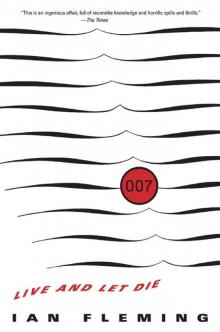 Live and Let Die (James Bond - Extended Series Book 2)
Live and Let Die (James Bond - Extended Series Book 2)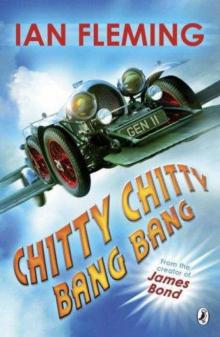 Chitty Chitty Bang Bang
Chitty Chitty Bang Bang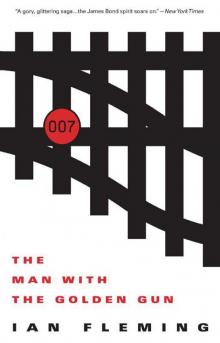 Bond 13 - The Man With the Golden Gun
Bond 13 - The Man With the Golden Gun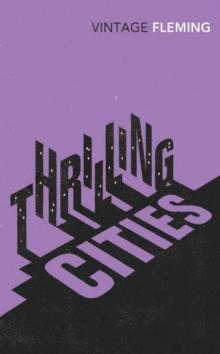 Thrilling Cities
Thrilling Cities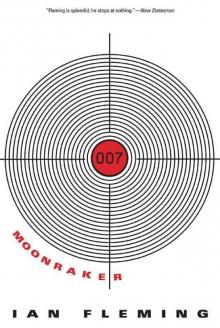 Bond 03 - Moonraker
Bond 03 - Moonraker